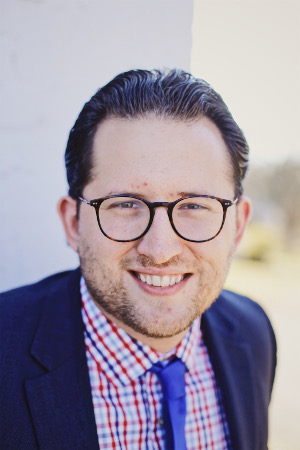
Jordan Brasher
Jordan Brasher, a PhD student in the Department of Geography, is certainly memorable. His specialty is human geography, in which he studies places of memory—statues, museums, and named streets, parks and schools—and how they play a role in conversations about mattering and belonging: whose histories matter, who belongs socially and politically. He seeks to explore how places of commemoration mark important Black geographical struggles over belonging, cultural citizenship, and the right to remember (and be remembered).
A prolific writer, Brasher has seven published or forthcoming peer reviewed pieces, and he is the sole or first author on four of those publications. One of these works was published in Social and Cultural Geography, which is ranked among the top 25 journals in the field of human geography. Faculty in his department say that his work puts him “on the leading edge of thinking about the relationship between place and social memory.”
Jordan is a highly decorated graduate student in the Department of Geography, having garnered many prestigious awards at the levels of department, college, and university. At a recent meeting of the Southeastern Division of the American Association of Geographers, he competed against doctoral candidates from across the southeast to win the John Fraser Hart Award for the Best PhD Student Paper Presentation. At the same meeting, he received the AAG Council for Outstanding Graduate Student Paper at a Regional meeting. This national level award is meant to recognize and support exemplary research.
Receiving the David L. Boren Fellowship gave Brasher the chance to go outside of Tennessee to study in Brazil: a linguistic, national, and racial political environment rather outside of his comfort zone. But despite having little knowledge of the language, history or culture of Brazil, he was able to create contacts and, through the intensive summer Portuguese language learning program at the prestigious Middlebury College in Vermont, arrive at his training site in Brazil with a solid ability to communicate in Brazilian Portuguese. He lived there for a year, to study the Confederados, a community that arose following the immigration of white southerners to Brazil after the Civil War, resulting in a unique mix of cultural contexts.
Jordan grew up in rural west Tennessee, and his curiosity and desire to make the world a better place have led him to foster a global viewpoint. But he maintains that he has “always stayed connected to my Tennessee roots.” He may struggle with those roots as a progressive, white southern male, but he intentionally places himself in difficult but necessary conversations that have enriched his work and ensured that it has a significant and relevant impact.
